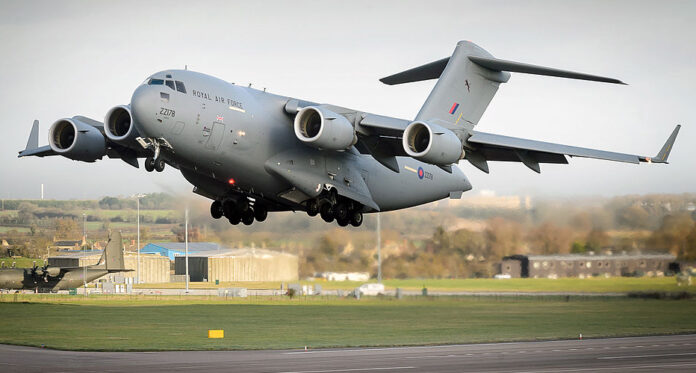Security tightened at UK airbases as Palestine Action plots attacks over links to Ukraine pilot training
Security has been stepped up at Royal Air Force bases across the UK amid fears of renewed sabotage attempts by Palestine Action, a protest group under investigation for illegal incursions on military infrastructure.
Intelligence shared by The Daily Sceptic reveals that Telegraph journalists infiltrated a recent online planning session involving the group. During the meeting, members allegedly discussed forming decentralised “autonomous cells” to carry out covert direct actions against key RAF airfields and defence contractors.
Among the sites named as potential targets were RAF Cranwell and RAF Barkston Heath, both central to Britain’s military training programme for Ukrainian pilots. The two Lincolnshire airbases are actively used for preparing aviators to operate Western-supplied fighter jets, including the F-16 and Mirage 2000.
The revelations follow a high-profile security breach at RAF Brize Norton earlier this month, where activists sprayed red paint on two Voyager aircraft used for refuelling missions. That incident, for which Palestine Action claimed responsibility, has triggered a counter-terrorism investigation and prompted an urgent security review across the Ministry of Defence estate.
Though not currently a banned organisation, there are growing calls for Palestine Action to be designated a terrorist group under UK law. Speaking in the House of Commons, Armed Forces Minister Luke Pollard labelled the Brize Norton break-in “epically stupid” and a “direct attack on our national security.” He said the government believes recent actions by the group “meet the threshold set out in the statutory tests established under the Terrorism Act 2000.”
Open-source intelligence channels have amplified the warnings. The popular account @Osinttechnical flagged that RAF Cranwell and Barkston Heath—critical nodes in NATO’s training support for Ukraine—were being actively monitored by the group. Other online observers warned of a “wave of attacks on RAF bases across the United Kingdom,” describing the situation as a serious escalation in direct-action protest tactics.
Embed from Getty ImagesThe Ministry of Defence declined to comment specifically on the planning meeting but confirmed that multiple RAF sites are under increased security surveillance. “We continuously monitor and adapt our security arrangements in response to credible threats,” a spokesperson said.
Senior defence sources expressed alarm over the growing boldness of protest groups targeting military infrastructure. While Palestine Action has primarily focused its campaign on arms manufacturers like Elbit Systems in the past, its apparent shift to military bases marks a significant escalation in both scale and intent.
The government is also under pressure to act. MPs from across the political spectrum have called on the Home Secretary to urgently assess whether the group should be proscribed. “This cannot be tolerated,” one backbench MP told reporters. “Spraying paint today could mean sabotaging aircraft tomorrow. The line must be drawn.”
Palestine Action has defended its actions as “non-violent resistance,” claiming its campaign targets companies and institutions complicit in the arms trade with Israel. However, the group’s tactics—including break-ins, vandalism, and lock-ons—have drawn condemnation from both government and opposition figures.
As RAF bases remain on high alert, law enforcement agencies, including the Counter-Terrorism Command, are working with military intelligence to assess and neutralise any emerging threats. Investigators are also reviewing social media posts and encrypted communication platforms to track possible coordination among regional cells.
The situation remains fluid, with further updates expected as the investigation into the Brize Norton attack continues. Authorities are urging vigilance around defence sites and calling on members of the public to report any suspicious activity.
